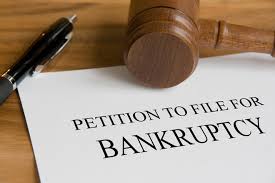 Bankruptcy is no small matter. If you’ve reached the point in your financial situation where you’re seriously considering if bankruptcy is right for you, you’ll want to keep a few key considerations in mind as you think about this option and begin to move forward.
Bankruptcy is no small matter. If you’ve reached the point in your financial situation where you’re seriously considering if bankruptcy is right for you, you’ll want to keep a few key considerations in mind as you think about this option and begin to move forward.
1. Bankruptcy comes in two forms, and you’ll need to think about which one you qualify for.
Chapter 7 bankruptcies are for those who make lower than the median state income. This type of bankruptcy can usually be cleaned up in a few months, and doesn’t involve a payment plan, but all assets are fair game to use to pay off debt as much as possible. A Chapter 13 bankruptcy involves a payment plan, but many people who file this way are able to keep their home. It usually lasts about three to five years.
2. Bankruptcy shouldn’t be seen as an easy way out.
It’s not a decision to be made because you simply don’t want to or think you can’t pay off your debts. Consider carefully the costs and consequences of filing bankruptcy. This is typically a last resort for people who have had some major event that has precluded them from being able to pay their debts.
3. Not everyone qualifies for a Chapter 7 bankruptcy.
Though may want to use this type of bankruptcy because a payment plan is not involved and it can be wrapped up more quickly, it is usually only for those who make below the state median income. You’ll need to take a means test in order to determine which one you qualify for.
4. Filing for bankruptcy is not free.
In fact, our attorneys at Scura Law Firm make it a point to disclose that bankruptcy can cost a pretty dollar with all the legal fees added up and for that reason you should do your due diligence in hiring a bankruptcy attorney that you can trust in representing you and your interests.
5. Bankruptcy will be on your credit report for ten years.
If your financial situation was bad before, it may not make much of a dent, but bankruptcy has the potential to make your credit score tank. It will take some effort and reliable borrowing to get your credit score back up.
6. Filing for bankruptcy will require learning, and time.
You’ll be required to attend both pre and post-bankruptcy credit counseling classes where you’ll be informed of the process and the consequences, as well as next steps.
7. Your bankruptcy is public information.
This one is self-explanatory. Not many people will probably be interested to know whether or not you filed bankruptcy, but it’s still good to know that this information is public and available.
8. You may be able to get a break on the cost of legal counsel if you can find a firm that does pro bono work.
Some Bankruptcy Attorneys offer legal assistance to those who really can’t afford it at a lower rate. Just be sure to find an actual attorney to hire instead of a non-lawyer.
These are all key points to keep in mind as you move toward bankruptcy. Being informed and educated on the topic will give you peace of mind and will help you know what to expect in the long run.
About The Author
John J Scura III, Esq. has been Certified by The Supreme Court of New Jersey as a Civil Trial Attorney. Whether it is a personal injury case, bankruptcy case, litigation case or other type of matter, John wants his clients to participate in the decision making process toward solving their problem in the best way possible.

No Comments